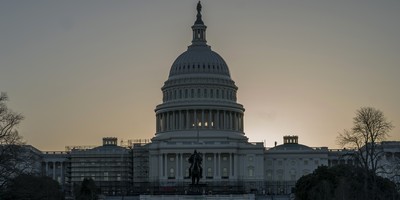Several months ago, I wrote a rather wonky post explaining that the western world became rich in large part because of jurisdictional competition. Citing historians, philosophers, economists, and other great thinkers, I explained that the rivalry made possible by decentralization and diversity played a big role in both economic and political liberalization.
In other words, it’s not just a matter of tax competition and tax havens (though you know how I feel about those topics).
Now I want to provide another argument in favor of the jurisdictional differences that are encouraged by national sovereignty. Simply stated, it’s the idea of diversification. Reduce risk by making sure one or two mistakes won’t cause a catastrophe.
This isn’t my insight. The author of The Black Swan understands that this simple principle of financial investment also applies to government. He recently explained his thinking in a short interview with Foreign Policy. The magazine began with a few sentences of introduction.
Nassim Nicholas Taleb has made a career of going against the grain, and he has been successful enough that the title of his book The Black Swan is a catchphrase for global unpredictability far beyond its Wall Street origins. …His newest project is helping governments get smarter about risks.
The rest of the article is Taleb in his own words. Here are some of my favorite passages, beginning with some praise for Switzerland’s genuine federalism and strong criticism of the EU bureaucracy in Brussels.
The most stable country in the history of mankind, and probably the most boring, by the way, is Switzerland. It’s not even a city-state environment; it’s a municipal state. Most decisions are made at the local level, which allows for distributed errors that don’t adversely affect the wider system. Meanwhile, people want a united Europe, more alignment, and look at the problems. The solution is right in the middle of Europe — Switzerland. It’s not united! It doesn’t have a Brussels! It doesn’t need one.
Recommended
But it’s important to understand why he likes Switzerland and dislikes the European Union: Small is beautiful. More specifically, decentralized decision making means less systemic risk.
We need smaller, more decentralized government. On paper, it might appear much more efficient to be large — to have economies of scale. But in reality, it’s much more efficient to be small. …an elephant can break a leg very easily, whereas you can toss a mouse out of a window and it’ll be fine. Size makes you fragile.
Taleb elaborates on this theme, echoing many of the thinkers I cited in my wonky September post.
The European Union is a horrible, stupid project. The idea that unification would create an economy that could compete with China and be more like the United States is pure garbage. What ruined China, throughout history, is the top-down state. What made Europe great was the diversity: political and economic. Having the same currency, the euro, was a terrible idea. It encouraged everyone to borrow to the hilt.
Because it’s a short article, he doesn’t cite many specific examples, so let me elaborate. One of the reasons for the financial crisis is that the world’s financial regulators thought it would be a good idea if everybody agreed to abide the same rules for weighing risks. This resulted in the Basel rules that tilted the playing field in favor of mortgage-backed securities, thus helping to create and pump up the housing bubble. And we know how that turned out.
But that’s just part of the story. The regulatory cartel also decided to provide a one-size-fits-all endorsement of government debt. Now we’re in the middle of a sovereign debt crisis, so we see how that’s turning out.
Unfortunately, governments seem drawn to harmonization like moths to a flame. To make matters worse, the corporate community often has the same instinct. Their motive often is somewhat benign. They like the idea of one rulebook rather than having to comply with different policies in every nations.
But mistakes made for benign reasons can be just as bad as mistakes made for malignant reasons.
P.S. Last but not least, it’s worth noting that Taleb is not a big fan of democracy.
I have a negative approach to democracy. I think it should be primarily a mechanism by which people can remove a bad leader
I don’t know if this is because he recognizes the danger of untrammeled majoritarianism, much like Thomas Sowell, George Will, and Walter Williams. But if you want more information on why 51 percent of the people shouldn’t be allowed to oppress 49 percent of the people, here’s a very good video.


























Join the conversation as a VIP Member